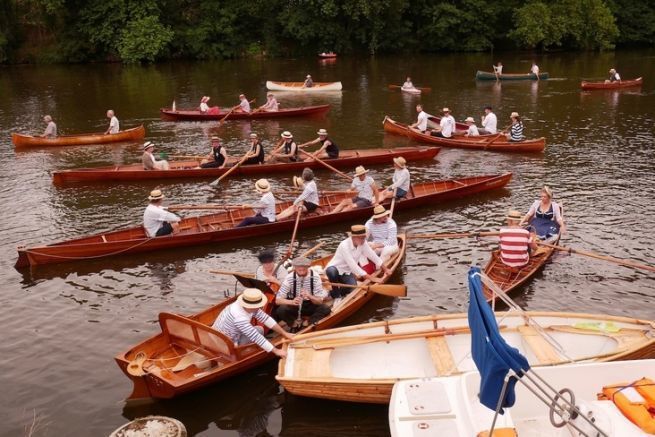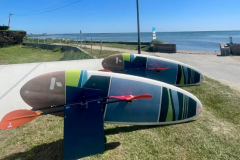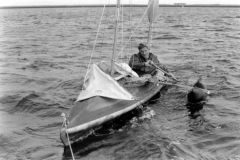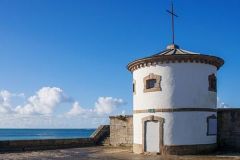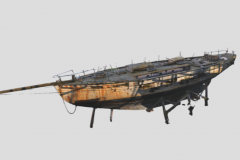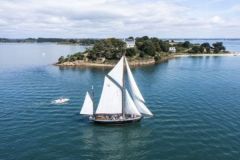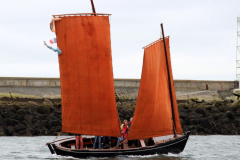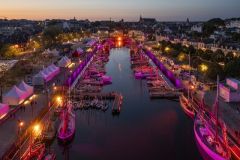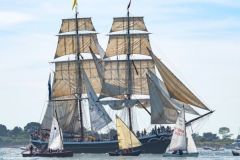The Pointe de Forclan in Cenon-sur-Vienne is a place steeped in nautical history: as early as the 1900s, the inhabitants of Châtellerault boarded the steamer Swallow to come and relax in one of the numerous riverside guinguettes. This beak of land at the confluence of the Clain and the Vienne rivers forms a superb park surrounded by water, ideal for nautical events and the organizers have not been mistaken.
A beautiful variety of boats
For their eighth edition, on June 25 and 26, 2022, the 1900 regattas had moved about fifty traditional boats representing all the currents of the canoeing of yesteryear (paddle, oar or sail). The boats were exposed on land where a jury rewarded the most beautiful restorations. This was followed by a night parade lit with lanterns. The next day, regattas and a "nautical mishap" allowed to taste the evolution of the boats and the maneuvering qualities of their crews.
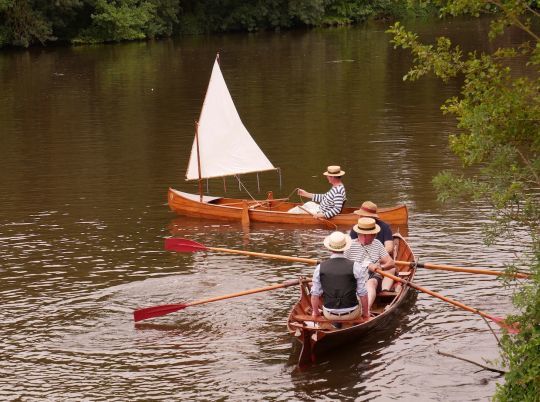
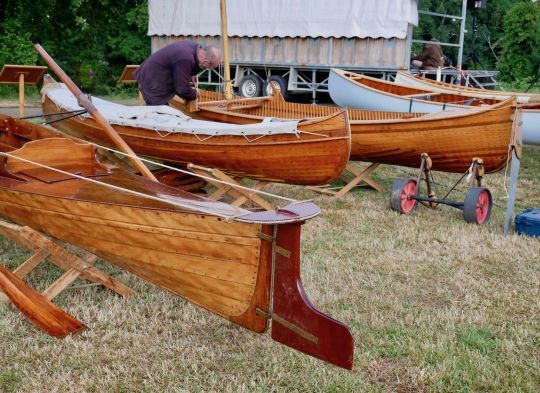
A party in clothes
In addition to the care given to the boats, the canoeists had taken care to dress in period costume, just like a good part of the visitors who competed in elegance. On land as well as on the water, everything took place in a good-natured atmosphere respecting the nautical capacities of each boat and proposing to those who wished to try the exercise of the paddle.
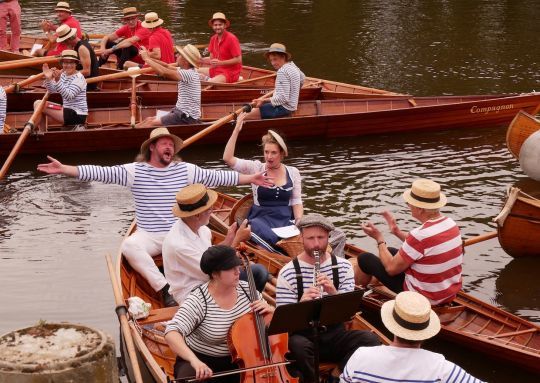
Bamboo rigging
Canadian canoes were largely represented, but also perissoirs with improbable freeboard. Rowing boats and other skiffs were also numerous. A few sails were scattered throughout the fleet, mostly on Canadian canoes. One could admire cotton sails nicely rigged on bamboo spars, the lateral daggerboards offering decent evolutions capacities despite an evanescent breeze.
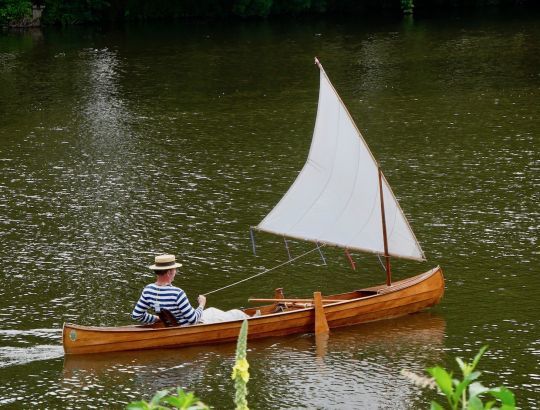
A concern for preservation
The most modern ones were replicas just out of the yard, while the oldest unit was dated 1860. This yawl with two rowers and a coxswain was recovered unexpectedly from a scrap dealer in Poitou. It is in an astonishing state of preservation and deserves to be saved as is. Her savior is looking for a place to store her that will be able to take care of this exceptional witness of the nautical heritage.
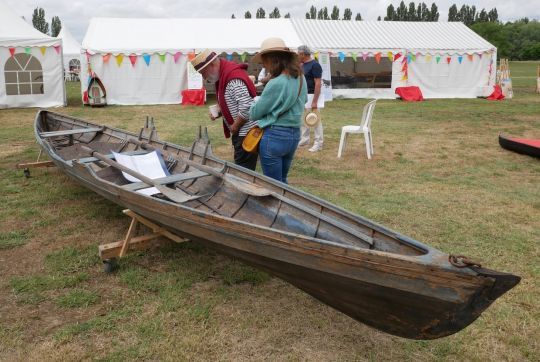
Doctor of boating
The 1900 Regatta is organized by the tourism department of Grand Chatellerault with the enthusiastic support of the Carré des canotiers, which works for a living preservation of this type of nautical leisure. One of the pillars of this association is Frédéric Delaive, Doctor of History who wrote his thesis on the canoeists. A well of canoe science and a precious technical and historical reference for all amateurs and restorers.
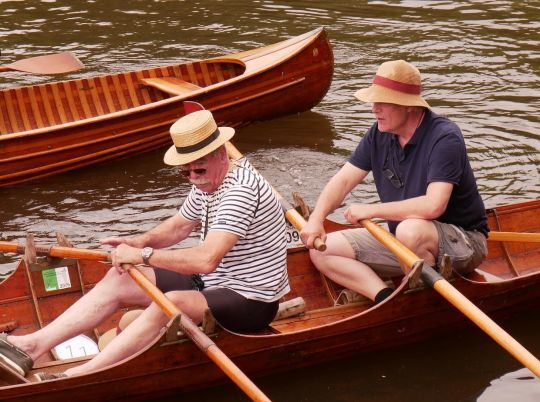
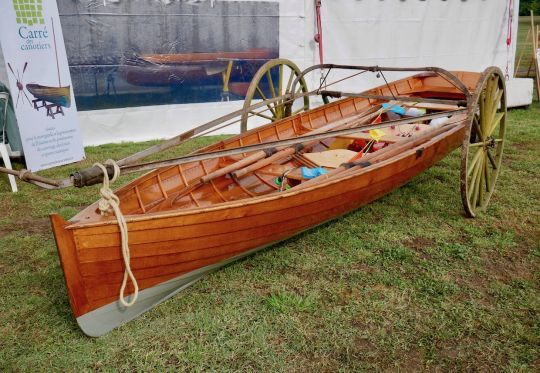
The participants often came from far away. One of them had travelled all the way from Germany to share these moments on the water to the sound of the bands and singers who were not reluctant to come aboard to give the aubade. In the end, the Regatta 1900 is an event that does much more than expose the shimmering varnish of historic boats. It keeps alive the spirit of the canoeists and the joyful diversity that animated our rivers at the turn of the century.
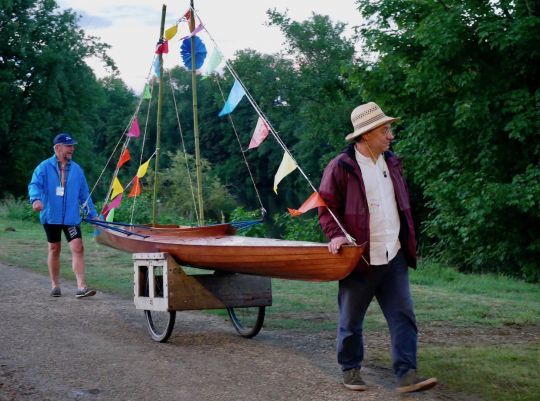
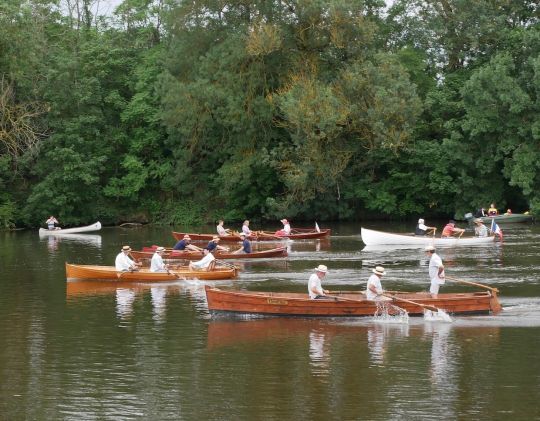

 /
/ 